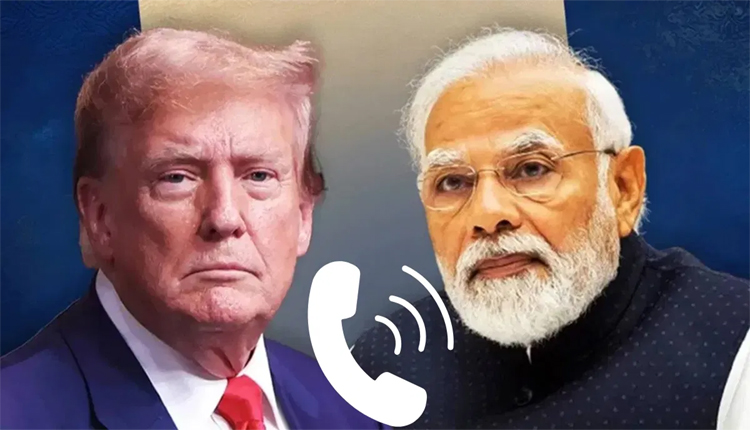New Delhi: In a sign of growing friction between India and the United States, Prime Minister Narendra Modi has reportedly turned down at least four phone calls from President Donald Trump in recent weeks.
The revelation, stemming from a prominent German newspaper, underscores the deepening trade disputes that have soured what was once a robust partnership.
The Frankfurter Allgemeine Zeitung (FAZ), a respected daily in Germany, claims that Trump’s attempts to reach Modi went unanswered amid escalating tensions over tariffs and economic policies. Sources suggest Modi’s refusal reflects not just irritation but a calculated wariness, especially after Trump’s recent barbs and diplomatic manoeuvres that have left New Delhi feeling slighted.
At the heart of the rift are punishing US tariffs — pegged at 50 per cent on Indian goods, the steepest imposed on any nation barring Brazil. Washington has also slapped penalties on India for continuing to import crude oil from Russia, a move that has irked American officials keen on isolating Moscow economically. Trump, never one to mince words, escalated matters last month by dismissing India’s economy as “dead” and suggesting it could sink alongside Russia’s.
Modi, in a pointed riposte during a public address earlier this month, highlighted India’s march towards becoming one of the world’s top three economies, a subtle jab at the US leader’s rhetoric.
The last conversation between the two leaders dates back to mid-June, a 35-minute call initiated by Trump that touched on terrorism and other shared concerns. Since then, silence has prevailed. Analysts point to Trump’s recent overtures towards Pakistan as a flashpoint — hosting army chief Asim Munir for a working dinner and touting potential oil deals that could benefit Islamabad, India’s longstanding rival. New Delhi has bristled at these developments, viewing them as provocative and dismissive of India’s security interests.
Adding to Modi’s caution is Trump’s track record in high-stakes negotiations.
The FAZ report draws parallels with Vietnam, where Trump recently renegotiated a trade pact in a single call with its leader, only to announce a deal prematurely on social media. Indian officials, it seems, are keen to avoid such pitfalls, preferring structured diplomacy over impulsive exchanges.
This episode marks a stark shift from the warmer ties nurtured over the past quarter-century. During Trump’s first term, Modi navigated US pressures adeptly, fostering cooperation without yielding on core economic fronts. But with trade imbalances in the spotlight — India enjoys a surplus with the US— the current standoff threatens to unravel the Indo-Pacific strategy, where India was envisioned as a key counterweight to China.
Experts like Mark Frazier from the India-China Institute warn that America’s approach is faltering. “The concept of an ‘Indo-Pacific’ alignment is collapsing,” he noted, emphasising India’s strategic pivot towards Beijing.
Indeed, Modi’s recent meeting with Chinese President Xi and upcoming attendance at the Shanghai Cooperation Organisation summit signal a recalibration in New Delhi’s foreign policy.
As both nations grapple with these strains, the broader implications for global alliances remain unclear. Clearly, the unanswered calls serve as a stark reminder of how quickly diplomatic goodwill can fray under economic pressures.



Comments are closed.